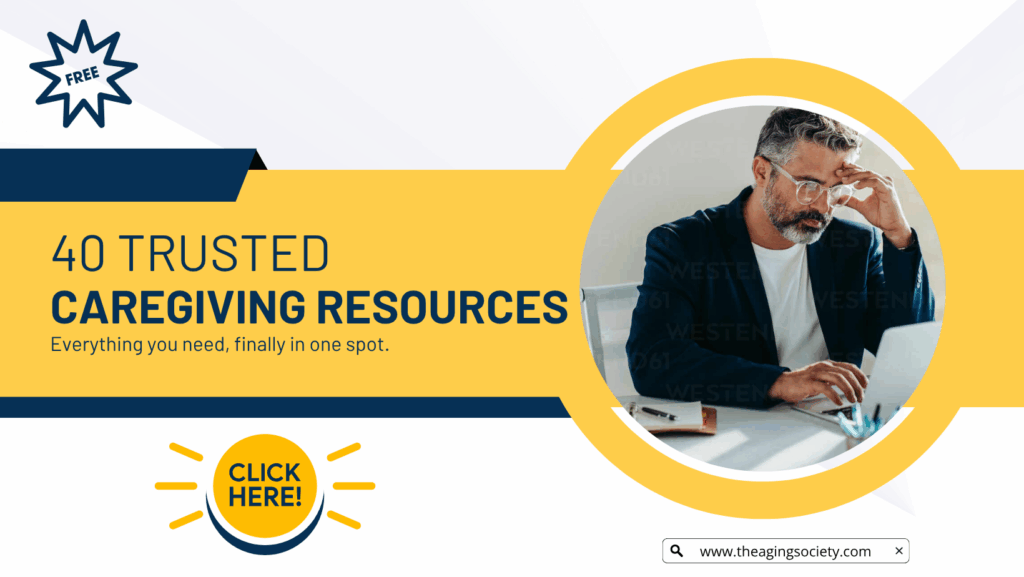Browse by categories
I help caregivers navigate conversations and decisions about senior care with clarity, confidence, and ease.
More about me
July 17, 2025
Caregiver constant worry is more than stress. It’s a mental marathon that never ends. You wake up and immediately wonder, What if today is the day something goes wrong?
One caregiver described it this way during a session:
“I wake up and immediately wonder—what changed overnight? Will she fall again? Will I get a call from the neighbor?”
This isn’t about a lack of resilience. It’s about how deeply you care. And that care shows up as overthinking, perfectionism, and the weight of trying to do it all, exactly right.
Let’s explore why this happens, and how to find some much-needed calm.
Why Caregiving Anxiety Feels So Overwhelming
When you’re responsible for an aging parent, the stakes feel sky-high. Every new symptom, forgotten appointment, or unusual silence can feel like a potential emergency.
Caregiver anxiety can sound like:
- “Is this just confusion or something serious?”
- “Should I call the doctor or wait?”
- “What if I’m missing something important?”
This kind of thinking becomes a cycle. Your brain doesn’t get a break. Not at dinner. Not while you sleep.
Because you’re not just caring for your loved one. You’re scanning for what could go wrong next.
You’re Not Crazy—You’re Carrying Too Much
Many caregivers, especially those like Lena, feel pressure to anticipate everything. To get it right before anything goes wrong.
This anxiety often shows up as:
- Guilt that you’re not doing enough
- Doubt that you’re overreacting, or worse, underreacting
- Emotional and physical fatigue from the hypervigilance
It’s not irrational. It’s your brain’s way of protecting someone you love. But over time, it becomes unsustainable.

How to Stop Caregiver Anxiety: The Best Practical Tip
1. Name the Fear
Vague worry grows in the dark. Writing down your fear makes it manageable.
“What exactly am I afraid will happen?”
When you name the fear, you give yourself the option to act—or let it go.
Caregiver Constant Worry: What It’s Really Saying
This worry often masks something deeper: the fear of making the wrong decision at the wrong time. It’s not failure that scares you—it’s the unknown.
If you’re like Lena, you may believe that if you just research more, you’ll feel better. But knowledge without rest still leads to burnout.
You don’t need to have every answer. You just need support that respects how seriously you take this role.
Fun Fact-Did You Know?
A 2023 study found that caregivers using structured checklists and written care plans reported 40% lower anxiety than those without.
Your mind needs systems as much as your schedule does.
Frequently Asked Questions
What is caregiving anxiety, and how is it different from general stress?
Caregiving anxiety stems from chronic worry about a loved one’s health and safety. It’s deeply emotional and persistent—even if there’s no crisis happening.
Can I feel anxious even if things seem okay?
Yes. Caregiver anxiety often exists in the space between “fine” and “failing.” It’s a response to unpredictable change.
Are my fears irrational?
Not at all. Even if they feel exaggerated, they reflect your real concern. Journaling or talking to a therapist can help you process them.
When should I get support for caregiver anxiety?
If it’s interfering with sleep, relationships, or your sense of self, it’s time. Support isn’t weakness—it’s sustainability.
Conclusion: From Overthinking to Steady Ground
If you’re stuck in the “what ifs,” it’s not because you’re weak. It’s because you care with precision. And that’s powerful, but also draining.
Take one small step today:
- Write down a recurring worry
- Track one change in your parent’s health
- Ask for help from someone who understands
You don’t need to eliminate worry. You just need to quiet it enough to move forward with clarity.


Susan Myers is a Mom, Caregiver Strategist, and founder of The Aging Society. She helps family caregivers get the clarity they need to navigate aging parent care without losing themselves in the process. Her courses, resources, and Caregivers: Talk With Purpose podcast offer grounded, practical support for the moments that feel overwhelming, confusing, or heavier than expected.
Leave a Reply Cancel reply
where can I take you?
where can I take you?
Resource Center
Caregiver essentials
thoughtful giftst
conversation action plan
home
contact
blog
about
The Aging Society helps caregivers navigate conversations and decisions about senior care with clarity, confidence, and ease.

Join Others in my Weekly Newsletter